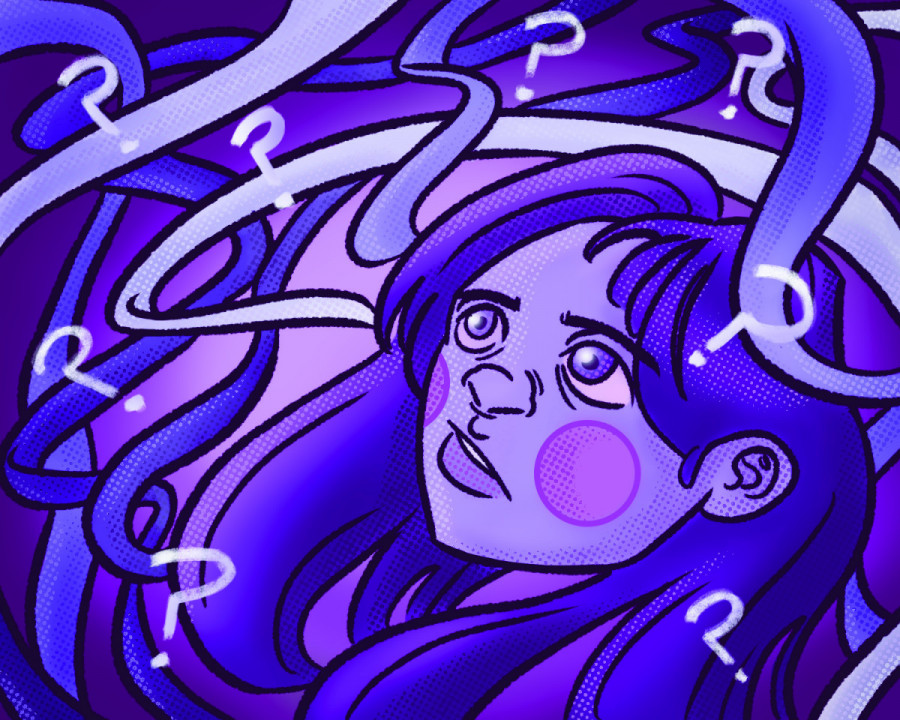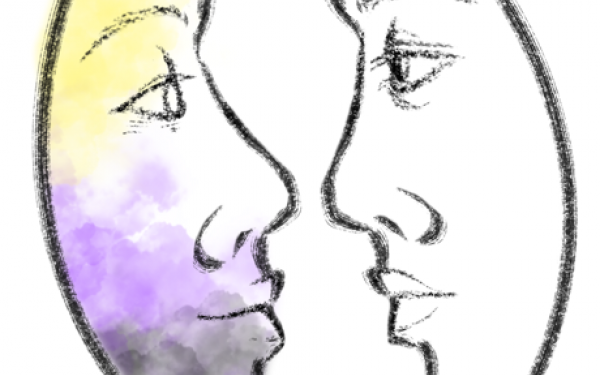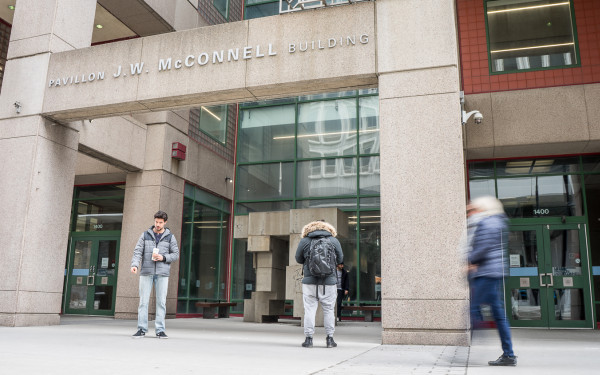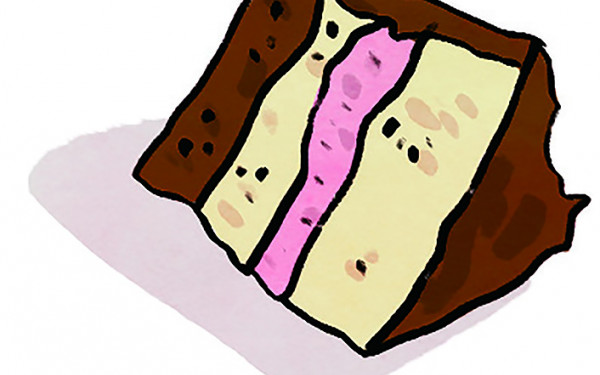Oops, I’m queer: A personal narrative
On (in)visibly becoming
Sexuality & an invisible orientation
Labels can be very important and empowering for people whose experiences diverge from “norms.” Words generate meanings, allowing us to make nebulous thoughts clear, making our dubious emotions more distinct. The concept and label of asexuality did this for me once I discovered there was a word for how I was oriented.
Asexuality is defined as a lack of sexual attraction to others or experiencing no sexual attraction. Some of us use the abbreviation “ace” when talking about our identities. Importantly, asexuality isn’t rigid; it’s a spectrum. Some ace people feel absolutely no sexual attraction. Others are demisexual: they may feel sexual attraction only after a close, deep emotional bond has been formed. Grey-asexual (or “grey-ace”) individuals identify as somewhere along the ace spectrum, between asexual and sexual.
We may refer to asexuality as an “invisible orientation” because the ace spectrum runs alongside many orientations. Ace individuals may be lesbian, gay, straight, or any orientation depending on whom they are attracted to. Likewise, ace individuals may have a diversity of gender identities and can be polyamorous or monogamous. In this way, the ace spectrum is intersectional, and like identities, there isn’t one holistic experience of it.
I identify along the ace spectrum as either grey-ace or demi because I feel that those terms describe the ambiguities I feel regarding sexual attraction. Because I can feel non-sexual attraction to people regardless of gender identity, I have used “panromantic asexual” to describe my orientation.
For me, there is a distinction between sexual touches and romantic or sensual touches. I don’t feel sexual attraction, but I can and have felt a romantic and emotional attraction to others before. Sometimes I don’t feel like initiating physical contact but in other cases, I might desire physical affection such as cuddling, handholding, hugging, kissing, etc. As such, this is something I take into consideration when navigating relationships through trust and open communication.
For anyone reading this, if you find yourself desiring forms of intimacy that are not sexual in nature and think you might identify along the ace spectrum, you are valid. I’ve had conversations with many people about my orientation, and sometimes there can be misconceptions about asexuality.
Misconceptions I’ve encountered about asexuality
Sometimes, people I talk to have trouble imagining a life without sexual attraction. People can be rude or dismissive when they hear about the ace spectrum, but wanting to ask questions is not inherently bad. People have also asked about my identity from a place of respect and understanding. Here are some questions I have encountered, or wondered myself, as I explored my identity:
“Maybe you just haven’t met the right person yet?” This might be the most common thing I hear. The question seems harmless at first glance, but if we dig a little deeper, we can see how the question assumes everyone experiences sexual attraction and it’s only a matter of the “right person” showing up and unlocking sexual attraction that was there all along.
This question misses how there are many different types of attraction, and not everyone experiences them all. You can be intimate with someone, be physically affectionate, and/or think they are beautiful in their own special way, and still not want to have sex with them.
Another identity that brings distinct types of attraction to the fore is aromantic: those who do not feel romantic attraction to others. I’m not aromantic, but others may be both asexual and aromantic, feeling neither sexual nor romantic attraction. People can also be aromantic and experience sexual attraction, wanting sexual relationships but not feeling attracted to partners romantically.
Not everybody experiences sexual attraction simultaneously, or at all, with other forms of attraction. For me, there are different kinds of touches; I am open to affectionate touching with those I’m deeply familiar with, but I don’t really like sexual touching. This distinction between sex and intimacy may be different for different people, and it merits talking about.
“Maybe you just have a low sex drive?” Well, what if I do? To be candid, I’m quite ambivalent towards sex, sometimes I feel like I’m averse to it. I suspect my sex drive is very low for these reasons. But this is not the same as being asexual! Ace individuals are not sexually attracted to anyone, but sex drive can vary for everyone no matter what orientation they have.
I came out of the closet only to fall into a bigger one, it seems.
So, ace individuals might still masturbate or have sexual encounters with partners, and there might be plenty of reasons for this; maybe sex is a way to show affection to their partner, maybe it just feels good to do sometimes. Just because someone identifies as asexual, doesn’t mean they can’t have or enjoy sex.
Personally, I much prefer other non-sexual forms of intimate playfulness, and I like physical expressions of trust and emotional vulnerability with a close romantic partner. But as with all identities, not everyone is the same, and ace individuals who are sexually active are still valid.
Members of a relationship who are on the ace spectrum and don’t wish to have sex should never be pressured into “compromising” by their partners; this kind of dynamic can be very uncomfortable or coercive. The idea that relationships without sex are less significant, or “failing”, is simply not true; there are plenty of people in happy relationships without sex.
“Aren’t you just abstaining from sex?” This is another misconception people on the ace spectrum encounter. The easiest way to illustrate the distinction here is to acknowledge choice. People can choose to practice abstinence or celibacy for religious or spiritual reasons, but this is not equivalent to asexuality.
Someone’s sexual orientation is not a “choice” because people don’t “choose” to be gay or bi or straight. It’s the same for ace individuals; we don’t “choose” to be asexual. I think we all can and should be respectful to one another regarding the diversity of attraction unique to each of us. When someone describes how they feel about sexuality to you, have an open mind and don’t try to invalidate them.
Stream of consciousness on gender identity
My ace identity alone does not subject me to disproportionate harassment or discrimination. Indeed, the other reason why I referred to it as an “invisible” orientation is because, depending on my partner, I can pass as heterosexual; I can “blend in” to what might be—problematically—considered “normal”. But this “blending in” is only true if I am to be gendered as a man.
Having been socialized as male since birth, I have been afforded certain privileges given the patriarchal structure of our society. But crucially—and I’ve never shared this publicly—I’m not a ‘man,’ no matter what we socially construct that to mean.
I have come to realize more and more my discomfort at the phrase “you are a man,” and the gender binary more generally. But I’ve lived all my life as boy/man, despite never feeling like I fit in; those categories were never my own. It wasn’t until very recently that I began taking the question seriously: Why can’t I be both genders? Or neither? Why do I feel so repressed? Maybe it’s because everyone I know has known me as “boy”, so there are expectations tied to my gender (or the gender that is projected onto me by others out of habit)?
It took me some time to explore my identity and find the language that describes my feelings. Finding words like “panromantic” and “asexual” helped me attach names to the ways I was experiencing attraction.
The fact that I can develop romantic feelings for people no matter their gender identity was, and is, very important to me. But I came out of the closet only to fall into a bigger one, it seems. Now I want to learn how I can create spaces to express the ambiguous gender I have, but it’s scary, new, and daunting; it makes me anxious in a way nothing quite has before.
“Why couldn’t I have remained frustrated with the binary gender that was given to me?” I think in jest. Seriously though, I struggle whenever I bring this up to people. What if they see me as a boy and think I’m lying? What if I’m wrong and offensive? How do I do it “right”? There is a cavalcade of concerns I feel and it can be hard to suss out which are legitimate and which are just internalized gaslighting.
Worst of all is trying to “come out” to my family and friends who know me, through years of experience, as a boy. What will they think? How will they react? Will they still love me in the same way? Maybe it’s silly to wonder about this, but I just have so much self-doubt and so many intrusive thoughts. Even if I don’t agree with what I’m imagining about my family and friends, it’s difficult for me to get out of that mode of thinking.
There are solutions though; I can give this article to people. I’ve created a gender-queer creative persona for creative projects; their name is Robyn. I also express my gender-queerness vicariously through Animal Crossing for Nintendo Switch; this game does away with strict binary genders for avatar characters and instead allows players to choose “styles” that can be modified at any time.
Another way I plan on slowly starting to expand my presentation in real life is through cosplay. There are many characters who either do not conform strictly to gender binaries or otherwise wouldn’t if I dress up as them. My thought process here is to arrive closer to my felt gender identity by substituting some of my clothing or physical features that invite projections of masculinity with ones that invite projections of femininity. The result would be a simultaneous expression of some masculinity and some femininity in a way that is very fluid.
For whatever reason, I don’t exactly feel comfortable exploring this at home, much less going out to stores to purchase new “feminine” articles of clothing or make-up I may or may not end up liking. What if people don’t take me seriously?
So far, I’ve only been able to inch towards this because close friends have created spaces for me where I can feel comfortable; I need to somehow learn to create these spaces of comfort. How might I do this? There’s no one universal answer—I’m sure everyone is different.
The subject of hair is another that overwhelms me. From a very young age, I wanted long, flowing hair like many of the characters in video games I grew up playing. My hair is too thin to do anything with, much less grow it out. This is why I’ve been looking into wigs, but I just don’t know where to start. There are some cheap ones I can use for cosplay of course, but what about a nice one I might just wear? I get frustrated thinking about it.
My damned facial hair is equally frustrating. Even before I began exploring the prospect of gender identity, I found shaving insufferable. I used to have a cream that got rid of facial hair when it first began to emerge, but my parents told me it will no longer work for my face.
I’ve begun shaving my legs as well. Doing so makes me comfortable, but the electric razor I have doesn’t go all the way down to the skin, so I’m only half satisfied with it. The battle for keeping my legs from turning into strawberries is fought long and hard in my washroom. I learned the hard way the value of lotion and exfoliating, but despite my best efforts, the top half of my legs continue to get irritated—miraculously, the bottom half of my legs turn out fabulously.
One thing I must consider is how we can sometimes get hyper-critical of our bodies, and that striving towards unrealistic standards for what is “pretty” or “looks good” can be problematic. Running serrated steel across my face and body is bound to cause some irritation. In the end, I can’t afford to laser away my facial hair, but I did get a eucalyptus after-shave cream for Christmas. If the smoothness of my face is going to fluctuate, at least I can have pleasant smells.
Fortunately, the internet is a wealth of resources for people experiencing similar questions about their gender identity. Hopefully, my developing story can add to these resources and inspire others to feel more confident in exploring themselves. If you have questions about your orientation or gender identity, finding articles and videos online where other queer individuals share their experiences can be immensely helpful, especially since mainstream media tends to lack diverse representation.
Staying in touch with friends online has also been an asset during this pandemic. A friend of mine invited me into a queer D&D campaign they’re organizing, which I’m very excited about. This might not work for everyone, but as a writer, I think creating characters is another great way of exploring identity.
Exploring your identity needn’t be a linear process. Sometimes I get frustrated and feel like I need to figure everything out all at once, but it’s okay to not have all the answers right away. Life happens wherever you are. It’s okay to move forward on your own terms and at your own pace; nobody can tell you how to be yourself, except you.
This article originally appeared in The Gender & Sexuality Issue, published March 10, 2021.







